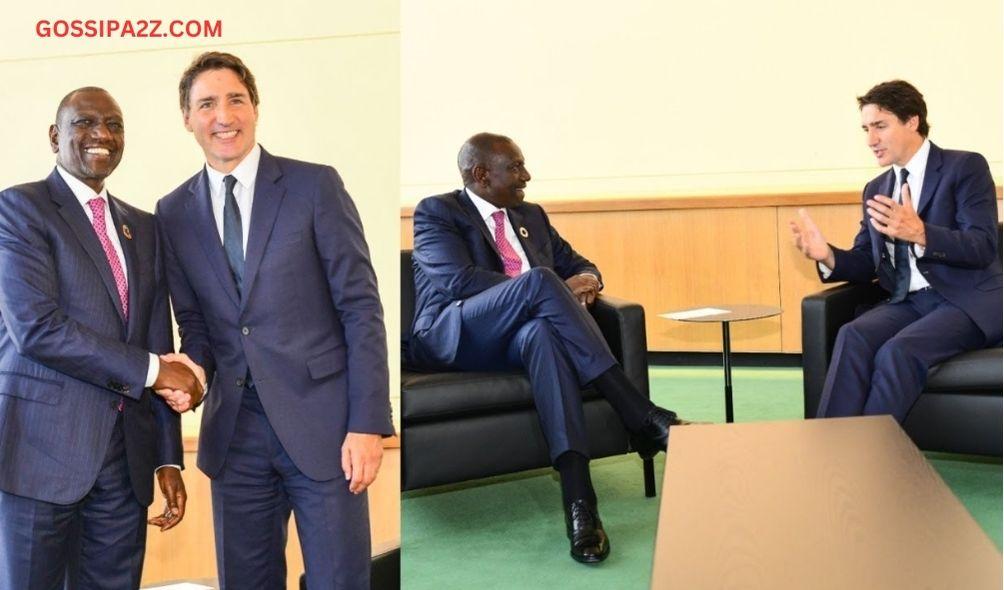Why Canada is Hesitant to Join Kenyan Troops in Haiti Despite US Pressure
Fresh information has surfaced regarding Canada’s reluctance to send military forces to Haiti alongside Kenya, despite significant pressure from the United States Government.
According to a CBC News report, the Canadian government led by Prime Minister Justin Trudeau did not offer to take part in efforts to bring peace to the Caribbean nation.
Instead, President Joe Biden of the United States Government exerted pressure for participation, citing that the US was already dealing with more severe global crises.
The report indicated that Canada favored making financial contributions and dispatching a team for an investigative mission rather than deploying ground troops.
Trudeau aims to avoid repeating Canada’s past deployment errors and advocates for Haiti authorities to assume primary responsibility for resolving the conflict.
“We have to come to grips a bit with the history of large military interventions, where you’re just pushing aside all of the Haitian institutions and (saying), ‘We’ll do this,” the outlet quoted Trudeau.
“And then the pressures come from back home, saying, ‘Well, how long are those troops going to be there?’ Troops come out again, and then where are you? What have you got left?”
ALSO READ:
- Gachagua Fires Back at Ruto’s ‘Complaints’ Over Opposition Party Launch- “Where Did You Get 4 Hours To Listen To Us?
- How IEBC Employees Used Fake KCSE & Degree Certificates to Make Ksh35 Million
- Govt Issues Stern Warning to Gachagua in Strongly-Worded Letter
- Raila to Rule from the Shadows? Senator Claims ODM Leader Will Be More Powerful Than Ruto
- Was Natembeya Fleeing for His Life as Angry Mob Turned Hostile at MP Malulu Injendi’s Home?
Bob Rae, Canada’s ambassador to the United Nations, echoed Trudeau’s views, suggesting that if Haiti assumed a leadership role and requested assistance, Canada would have been quick to respond.
“We think with the appropriate kind of help and assistance, and whatever it is that they ask for and feel that they need, yes, we’re going to do it. But it’s really important for the Haitian political elite to take some responsibility for what’s taking place and what continues to take place,” Rae stated.
“That’s exactly why in all of our discussions in Haiti on the ground … we’re saying to all other leaders, you’ve got to get together, you’ve got to create a path that leads to an election but … also leads to it strengthening all of the institutions that make up a democratic society.”
In contrast, Kenya is gearing up to deploy more than 1,000 police officers to Haiti for a peace-restoring mission.
The initiative, supported by President William Ruto, was halted weeks ago after Haitian Prime Minister Ariel Henry resigned, causing upheaval in the agreement between the two leaders.
In Kenya, there is growing anger among locals about the deployment, with many suggesting that the situation is escalating towards a full-blown conflict, and sending in police officers is seen as a risky endeavor.
Gang’s Trick Sleeve
Jacqueline Charles, a seasoned Haiti correspondent at the Miami Herald, informed CBC News that the present conflict surpasses past instances in severity, primarily because of the multitude of gangs involved and their concerted efforts to undermine the government.
She also mentioned that a specific gang, known as the 5 Seconds gang, has recently emerged on the streets. They’ve been seen wearing fresh camouflage uniforms, carrying new FAL rifles, handguns, and radios, and organizing themselves in a manner resembling a paramilitary group.
“In the last two weeks, what we’re seeing is coordinated violent attacks by gangs that normally don’t speak to each other. They’ve orchestrated two major prison breaks. We’ve got thousands of people on the streets, murderers, kidnappers, and other kinds of criminals. They’re still out there. You have a police force that is overworked and outgunned. So I don’t think anybody has seen this in Haiti in recent years,” she explained.
Ruto Call With Trudeau
Four days prior, President William Ruto engaged in a telephone discussion with Prime Minister Justin Trudeau, during which Trudeau expressed satisfaction at the announcement of a political consensus among Haitian parties regarding the appointment of an interim council and transitional administration.
“Prime Minister Trudeau expressed his appreciation for Kenya’s leadership of the United Nations-authorized Multinational Security Support (MSS) mission to restore stability in Haiti. The Prime Minister and the President discussed the latest developments and shared their deep concerns over the security and humanitarian crises, reiterating their commitment to supporting the people of Haiti and the MSS mission,” read the statement in part.
Canada pledged to contribute Ksh11 billion towards the mission.
Why Canada is Hesitant to Join Kenyan Troops in Haiti Despite US Pressure
